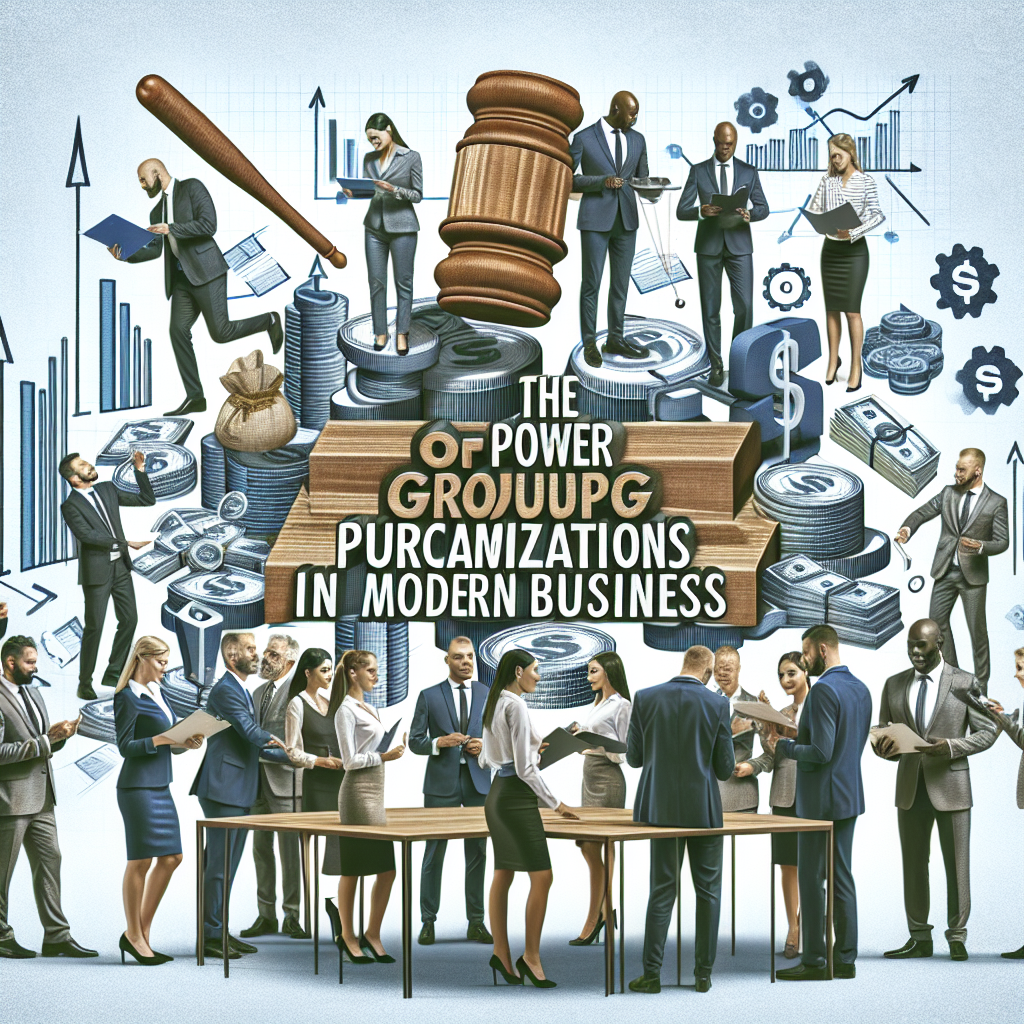Understanding Vendor Contracts in Procurement
Understanding vendor contracts is crucial in procurement processes. These contracts define the terms and conditions under which goods or services are provided, ensuring clarity and mutual agreement between parties. Effective contract management can prevent disputes, control costs, and enhance the efficiency of procurement activities.
Key takeaway: Familiarizing yourself with different types of vendor contracts can significantly enhance your procurement strategies and mitigate potential risks. Knowing which contract type to use in specific scenarios enables you to make informed decisions, leading to better outcomes for your organization.
In this article, we will explore 15 essential vendor contract types that every procurement professional should be aware of:
- Fixed Price Contracts
- Cost Reimbursement Contracts
- Time and Materials Contracts
- Indefinite Delivery Contracts
- Letter Subcontracting Agreements
- Distribution Agreements
- Public Works Contracts
- Professional Services Contracts
- Concession Agreements for Vendors Operating on Public Property
- Small Order Purchases (SOPs) in Procurement Practices
- Cash Reimbursable Contracts Compared to Standard Cost Reimbursement Structures
- Blanket Purchase Agreements Streamlining Purchasing Processes
- Service-Specific Provisions Within Service Contracts Provision
- Long-Term Supplier Relationships Established Through Framework Agreements
- Comprehensive Contractual Tools Facilitating Future Transactions Between Parties
Each type has unique features tailored to different procurement needs. By understanding these, you can improve contract management and lead successful procurement initiatives.
Moreover, embracing strategic sourcing can further optimize your procurement efforts for long-term success. This approach not only helps in cutting costs but also aids in managing risks effectively while building strong supplier relationships.
Additionally, continuous learning and adaptation play a significant role in mastering procurement as illustrated by Frank Corris’s transformative journey. Such insights are invaluable in driving procurement success.
Furthermore, leveraging resources like break room supplies to boost employee morale can indirectly enhance productivity and efficiency in procurement activities.
Lastly, it’s essential to address common misconceptions surrounding Group Purchasing Organizations (GPOs). Our guide on mythbusting GPOs offers expert insights into the proven benefits of using GPOs to streamline procurement processes.
1. Fixed Price Contracts
Fixed price contracts set a predetermined price for goods or services, regardless of actual costs incurred by the vendor. This type of contract is common in procurement processes due to its predictability.
Variants Explained:
- Firm Fixed Price (FFP): A set price that does not change.
- Fixed Price with Incentive Fee (FPIF): Includes incentives for meeting or exceeding performance targets.
- Fixed Pricing with Economic Price Adjustment (FPEPA): Allows adjustments based on economic conditions.
Advantages:
- Predictable budgeting, which can greatly assist in budget optimization
- Simplifies cost management
Disadvantages:
- Less flexibility for scope changes
- Risk of overpricing or underpricing due to fixed nature
However, the predictability and simplicity of fixed price contracts can also help in communicating the value of procurement to the C-Suite, aligning with business goals and showcasing success for executive support.
It’s important to note that while these contracts provide certain advantages, they also come with challenges such as reduced flexibility for scope changes and potential pricing risks. Therefore, careful consideration is required when deciding on the suitability of fixed price contracts for specific projects.
2. Cost Reimbursement Contracts
Cost reimbursement contracts play a crucial role in procurement by covering the seller’s project costs. These contracts are particularly valuable when project expenses are uncertain.
Types of Cost Reimbursement Contracts:
- Cost Plus Fixed Price (CPFP): The buyer covers all costs and adds a fixed fee for the seller.
- Cost Plus Incentive Fee (CPIF): Costs are shared between the buyer and seller, with incentives for cost-saving.
- Cost Plus Award Fee (CPAF): Additional fees are awarded based on performance metrics.
When to Use Cost Reimbursement Contracts:
Choose these contracts in scenarios where project scope is not clearly defined, or when innovation and flexibility are needed. They are ideal for research and development projects or complex construction undertakings where costs can vary significantly.
However, managing such contracts effectively can be challenging. For instance, if you’re operating a one-person procurement function, you might find it beneficial to follow some tips for managing a one-person procurement function which could help optimize your procurement process for cost efficiency and supplier management.
Additionally, understanding the nuances of indirect spend is crucial for overall cost management. Implementing effective strategies for managing indirect spend can lead to significant cost savings and efficiency improvements.
It’s also essential to be aware of common pitfalls in procurement. Familiarizing yourself with 6 classic procurement failures and how to overcome them can provide valuable insights for improved efficiency and cost savings.
Moreover, understanding tail spend management is another key aspect that can boost efficiency, cut costs, and improve compliance in procurement processes.
3. Time and Materials Contracts
Time and materials contracts are procurement agreements where the buyer pays for the time spent and materials used by the vendor. These contracts often include a cap on expenses to control project costs, which can help in managing spend culture effectively.
How They Operate
- Structure: These contracts consist of two main components: labor (time) and materials.
- Labor Costs: Billed at an agreed-upon hourly rate.
- Material Costs: Reimbursed based on actual expenditure.
Beneficial Situations
Time and materials contracts are advantageous when:
- Project scope is not well-defined
- Flexibility is required to accommodate changes
- Detailed tracking of project costs is necessary
4. Indefinite Delivery Contracts
Indefinite delivery contracts are flexible procurement agreements that allow for the delivery of an unspecified quantity of goods or services over a defined period. These contracts provide significant benefits, especially in uncertain supply environments where demand can fluctuate.
Benefits:
- Flexibility: Adjust quantities as needed without renegotiating terms.
- Cost Efficiency: Avoid overstocking or understocking, leading to better budget management.
- Streamlined Procurement: Simplify procurement processes by establishing long-term agreements with vendors.
Such contracts often include mechanisms for periodic review and adjustment, ensuring alignment with evolving project requirements.
5. Letter Subcontracting Agreements
Letter subcontracting refers to a simplified form of subcontract that outlines basic terms and conditions without extensive legal language. These agreements are typically used when immediate action is required, and there isn’t enough time to draft a comprehensive contract.
Key Features:
- Simplicity: Basic terms and conditions are outlined in an easy-to-understand format.
- Speed: Enables quick initiation of work or services, essential for urgent projects.
- Flexibility: Can be easily modified into more detailed agreements as the project progresses.
Use letter subcontracts when you need to start work quickly but still want some contractual protections in place. However, it’s important to note that while these agreements can expedite the process, leveraging advanced tools like procurement software solutions can significantly streamline your procurement process, making it more efficient and effective.
6. Distribution Agreements
Distribution agreements are contracts that define the terms under which one party (the distributor) distributes products on behalf of another party (the supplier). These agreements play a crucial role in procurement processes, ensuring that goods reach the market efficiently and effectively.
Key components include:
- Territory: Defines the geographic area where the distributor can sell the products.
- Terms of Sale: Specifies pricing, payment terms, and delivery schedules.
- Exclusivity Clauses: Determines whether the distributor has exclusive rights to sell the product in the specified territory.
- Responsibilities: Outlines both parties’ obligations, including marketing, storage, and support.
- Duration: States the length of the agreement and conditions for renewal or termination.
7. Public Works Contracts
Public works contracts are essential for the procurement processes of government projects. These contracts usually involve the construction, renovation, or improvement of public properties like roads, bridges, and buildings.
Why Public Works Contracts Matter:
- Importance: Public works contracts guarantee that critical infrastructure projects are completed efficiently and meet high standards.
- Fairness in Bidding: To promote fairness and transparency, these contracts often require competitive bidding for projects exceeding specific monetary thresholds. This ensures that the government gets the best value for taxpayer money while maintaining quality and compliance standards.
For procurement professionals working on government projects, it is crucial to understand the complexities of public works contracts.
8. Professional Services Contracts
Professional services contracts are agreements designed for procuring specialized services such as consulting, technical assistance, legal advisory, and more. These contracts typically focus on the expertise of individuals or firms rather than tangible goods.
Key components of professional services contracts include:
- Scope of Work: Clearly defined tasks and deliverables.
- Payment Terms: Fees, schedules, and reimbursement conditions.
- Performance Metrics: Criteria for evaluating the quality of services rendered.
Best practices for acquiring specialized services through RFPs (Requests for Proposals):
- Detailed RFP Creation: Outline specific requirements, objectives, and evaluation criteria.
- Vendor Prequalification: Ensure potential vendors possess necessary qualifications and experience.
- Transparent Evaluation Process: Use a scoring system to objectively assess proposals based on predefined criteria.
Adhering to these practices ensures that procurement professionals secure high-quality professional services tailored to their organizational needs.
9. Concession Agreements for Vendors Operating on Public Property
Concession agreements grant vendors the right to operate businesses on public property. These contracts are crucial for activities like setting up food stalls, retail kiosks, or recreational services in parks and other public spaces.
Key Points:
- Explanation of Concession Agreements: These agreements define the terms under which vendors can use public lands, including rent, duration, and specific operational guidelines.
- Competitive Bidding Processes: To ensure fairness and transparency, concession agreements are typically awarded through competitive bidding. The process involves submitting proposals that are evaluated based on criteria such as financial offers, operational plans, and compliance with public policies.
Understanding these elements ensures vendors can effectively navigate the legal and operational landscape of public property utilization.
10. Small Order Purchases (SOPs) in Procurement Practices
Small Order Purchases (SOPs) streamline procurement for small-scale needs. These purchases are characterized by:
- Minimal paperwork: SOPs often bypass extensive bidding processes.
- Quick turnaround: Ideal for urgent, low-cost items.
Advantages:
- Efficiency: Reduces time spent on procurement.
- Cost savings: Less administrative overhead.
Limitations:
- Limited scope: Not suitable for high-value or complex procurements.
- Risk of inconsistency: Without formal bids, quality may vary.
11. Cash Reimbursable Contracts Compared to Standard Cost Reimbursement Structures
Cash reimbursable contracts provide a streamlined approach where the buyer reimburses the seller directly in cash for costs incurred, rather than through invoices. This can expedite payment processes and improve cash flow for vendors.
Advantages:
- Immediate Payment: Vendors receive faster payments, enhancing their liquidity.
- Simplified Accounting: Reduces administrative burden by eliminating the need for detailed invoicing.
- Flexibility: Beneficial in scenarios requiring quick financial transactions, such as emergency procurements or short-term projects.
In contrast, standard cost reimbursement structures are more complex, involving detailed invoices and longer processing times. These structures often require implementing cost reduction strategies to manage expenses effectively. Understanding these differences helps you select the most efficient contract type for your specific procurement needs.
12. Blanket Purchase Agreements Streamlining Purchasing Processes
Blanket Purchase Agreements (BPAs) are pre-established contracts that streamline procurement by allowing multiple purchases from a single vendor without issuing individual purchase orders each time. This approach simplifies administrative processes, reduces paperwork, and ensures consistent pricing.
Benefits for Buyers
- Efficiency: Reduces the need for repetitive procurement cycles.
- Cost Savings: Leveraging volume discounts and stable pricing.
- Flexibility: Easily adjustable to meet varying demand.
Benefits for Vendors
- Consistent Revenue Stream: Assurance of recurring business.
- Simplified Invoicing: Less administrative burden with consolidated invoicing.
- Improved Relationships: Strengthened long-term partnerships with buyers.
While BPAs offer significant benefits, exploring other procurement strategies such as Group Purchasing Organizations (GPOs) can further enhance purchasing efficiency. GPOs aggregate the purchasing power of multiple organizations to secure better pricing and terms from suppliers. This comparison of top Group Purchasing Organizations can provide valuable insights into optimizing procurement processes.
Additionally, understanding the differences between Purchasing Groups and GPOs can help in selecting the most suitable option for your organization’s needs.
13. Service-Specific Provisions Within Service Contracts Provision
Service contracts provision includes specific clauses tailored to the nature of the service being procured. These provisions outline key expectations and deliverables, ensuring clarity and accountability.
Key elements often covered:
- Scope of Work: Detailed description of services to be provided.
- Performance Standards: Metrics and benchmarks for service quality.
- Payment Terms: Schedule and conditions for payments.
- Duration and Termination: Contract length and termination conditions.
- Confidentiality Clauses: Protection of sensitive information.
- Dispute Resolution: Procedures for resolving conflicts.
These provisions help align both parties’ expectations, fostering a clear understanding of responsibilities and performance criteria.
14. Long-Term Supplier Relationships Established Through Framework Agreements
Framework agreements serve as strategic tools in procurement, setting the stage for long-term supplier collaborations. These contracts outline the general terms and conditions under which future purchases can be made, without needing to renegotiate each time.
Benefits of Framework Agreements:
- Stability and Consistency: Ensures a reliable supply chain.
- Cost Efficiency: Reduces administrative and negotiation costs.
- Flexibility: Allows for adjustments based on market conditions.
Example: A multinational corporation might use a framework agreement with an IT services provider, setting terms for various projects over several years, enhancing both predictability and mutual trust.
“Framework agreements long-term suppliers” are essential for building resilient procurement strategies. They also play a crucial role in tail spend management, ensuring that even the smallest expenditures are managed efficiently. This is particularly important in the context of supplier relationship management, where maintaining strong relationships with suppliers can lead to better pricing, quality, and service.
For businesses looking to reduce costs while maintaining quality, partnering with a Tier One Woman-Owned Office MRO Supplier can be a game-changer. These suppliers not only offer unbeatable pricing but also provide dedicated customer support, making them an ideal choice for companies aiming to streamline their procurement processes. If you’re interested in exploring such partnerships or have any inquiries, feel free to contact us for further assistance.
15. Master Service Agreements (MSAs): Streamlining Future Transactions
Master Service Agreements (MSAs) are comprehensive contractual tools designed to streamline future transactions between parties. They establish broad terms and conditions, allowing for smoother negotiations on individual projects or purchases.
Key Features of MSAs:
- General Terms: Cover fundamental aspects such as payment terms, confidentiality, and dispute resolution.
- Scope of Work: Outline potential services or products without specifying exact details for each transaction.
- Flexibility: Enable rapid initiation of specific agreements under pre-established conditions.
MSAs are valuable in scenarios where ongoing relationships and repetitive transactions are anticipated, promoting efficiency and consistency.
Conclusion: Making Informed Contract Choices to Improve Procurement Efficiency
Understanding the various types of vendor contracts is crucial for any procurement professional. Each contract type, from Fixed Price Contracts to Master Service Agreements (MSAs), serves unique purposes and comes with specific advantages and challenges.
Fixed Price Contracts ensure cost predictability but can limit flexibility. Cost Reimbursement Contracts offer adaptability in project execution, making them suitable for complex or uncertain projects. Time and Materials Contracts provide a balance between cost control and flexibility, ideal for projects where the scope isn’t fully defined.
Key Takeaways:
- Adaptability: Align contract types with project needs to maximize efficiency.
- Risk Mitigation: Choose contracts that minimize financial exposure and legal risks.
- Supplier Relationships: Utilize long-term agreements like Framework Agreements to build strong supplier partnerships.
- Efficiency: Implement Blanket Purchase Agreements and MSAs to streamline purchasing processes.
By selecting the appropriate contract type, you can enhance procurement strategies, improve supplier relationships, and mitigate potential risks. Embrace these tools to drive better procurement outcomes and achieve organizational goals effectively.





